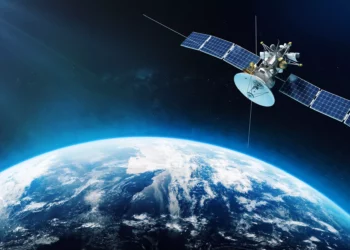As the world marks Global Media and Information Literacy Week, Nigeria faces an urgent question: can a nation build a resilient economy when misinformation clouds public debate, policy decisions, and investor confidence?
In today’s hyper-connected world, media and information literacy (MIL) is not just about spotting fake news, it is an essential economic skill. For a country like Nigeria, where public trust in institutions is fragile and economic policymaking often plays out in the noisy theatre of social media, the ability to access, evaluate, and use credible information could mean the difference between progress and paralysis.
The digital space now wields as much power over the economy as oil prices or fiscal policy. Rumours about currency redenomination, false reports of subsidy returns, or manipulated inflation data can instantly trigger panic buying, capital flight, and policy confusion. The Nigerian economy, already battling inflationary pressures, exchange rate volatility, and low productivity, cannot afford the additional cost of misinformation.
Investors, domestic and foreign, rely on credible data to make decisions. When public discourse is driven by emotion, conspiracy, and misinformation, economic stability suffers. The Nigerian Exchange (NGX), for instance, has seen volatility fueled as much by online speculation as by market fundamentals. Similarly, unverified reports about government borrowing or debt repayments can distort the perception of Nigeria’s fiscal health and scare off potential partners.
Media and information literacy must therefore be seen as an economic reform tool. The same way we invest in roads and power, Nigeria must invest in truth infrastructure, credible data systems, responsible journalism, and public education that strengthen citizens’ ability to discern fact from fiction.
This year’s Global MIL Week theme: “Media and Information Literacy in Digital Spaces: A Path to Trust and Resilience,” is particularly relevant. In Nigeria, a country with one of Africa’s highest mobile and social media penetration rates, the democratisation of information has not been matched by the democratisation of critical thinking. Millions consume data daily without the tools to verify sources or understand context. The result: distorted markets, politicised economic debates, and public cynicism.
The National Bureau of Statistics (NBS), the Central Bank of Nigeria (CBN), and the Ministry of Information must collaborate with media and civil society to promote factual reporting and data transparency. Public institutions must learn to communicate clearly, quickly, and credibly. Delays or silence only feed the rumour mill, and the economy pays the price.
Equally, the media industry must take responsibility for economic literacy. Reporters covering fiscal or monetary issues must be trained to interpret data accurately and to challenge misinformation responsibly. Newsrooms must invest in fact-checking desks and data journalism. Social media influencers, who now shape public opinion as much as traditional journalists, should be held to basic standards of accuracy and accountability.
For Nigeria to attract sustainable investment and public trust, it must foster an information ecosystem where truth, not propaganda, drives decision-making. Media literacy should not be left to communication experts alone; it must become part of the nation’s broader economic strategy.
In the end, no economy can thrive in an atmosphere of ignorance and manipulation. A media-literate Nigeria is a more stable, confident, and prosperous Nigeria. As the world celebrates Global Media and Information Literacy Week, Nigeria must seize the moment not just to fight fake news, but to rebuild the foundation of informed economic growth.





